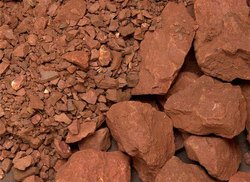Welcome To ChemAnalyst

JAKARTA: Miners have once more urged the government to reconsider the policy since domestic facilities are insufficient to process all their output. Indonesia is scheduled to institute a restriction on exports of unprocessed Bauxite in a few days.
The discontinuation of exporting the raw material for Aluminium by Indonesia, the world's sixth-largest Bauxite producer, will be effective from this Saturday. This is due to the 2020 regulation that prohibits all metal ore exports and is intended to incentivize investment into refineries. Despite the government continuing to impose the export limitation on bauxite, miners dealing with copper, iron, and other ores were given an extended period until last month to complete their smelter development.
The Indonesian government has stated that there are three alumina plants producing smelter-grade alumina and one plant producing chemical-grade alumina, with a total capacity of roughly 14 million tonnes.
According to a statement made by the Indonesian Minister of Mining, Arifin Tasrif, last month, this would suffice to handle the ore output.
Although production of Aluminium has reached about 30 million tonnes annually, this could compel miners to stop working If their excess ore has no market demand.
Indonesia implemented the embargo on exporting unprocessed ore in 2020 to follow their previous success in drawing foreign investors to the Nickel processing industry.
However, a Bauxite processing facility can cost up to $1.2 billion, which is nearly three times as much as a Nickel pig Iron smelter. Miners have found it difficult to obtain bank funding ever since Indonesia initially declared an intention to ban exports in 2009.
Although companies have had ample time to comply, the ban will go into effect as scheduled. The government might think about releasing certain miners from the restriction if their smelters are at least partially completed, but seven out of the eight active Alumina projects. Despite government efforts to arrange meetings between mining companies and banks, assurances were unable to be made.
One of the requirements was smelter construction progress, and Bauxite's lack of development made it difficult for the government to contemplate exemption.
The global market is likely to be marginally affected by the ban since China, the biggest Aluminium producer worldwide, can acquire bauxite from other sources like Guinea and Australia, both of which hold potential for expanding their Aluminium production.
The restriction on Bauxite in Indonesia is unlikely to draw international investment, unlike the ban on Nickel, because there are alternatives.
We use cookies to deliver the best possible experience on our website. To learn more, visit our Privacy Policy. By continuing to use this site or by closing this box, you consent to our use of cookies. More info.
